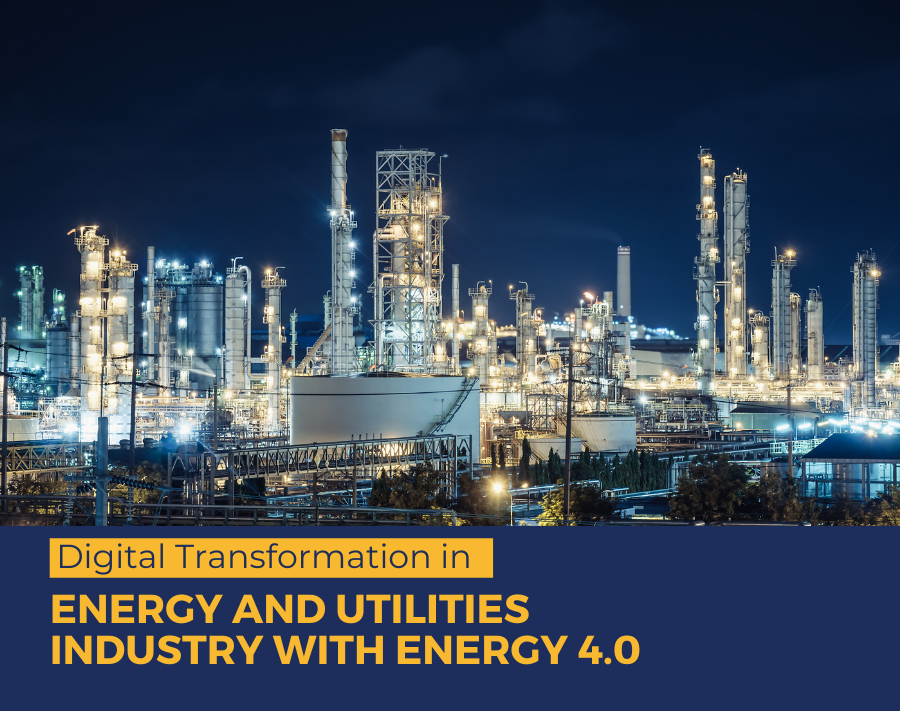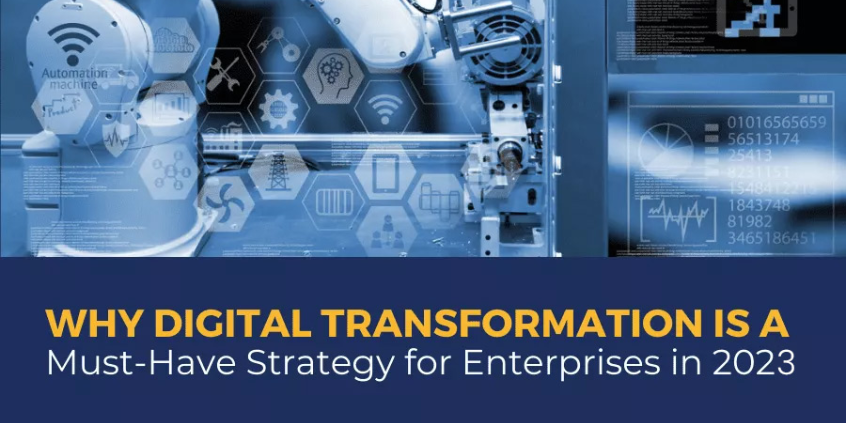The past couple of decades have seen several industries increasingly adopting digital transformation solutions to leverage the potential of the latest digital transformation technologies. Although late to join the party, the utility and energy sector is now on the road to revolution.
It is not enough for the utility and energy industry to simply make changes in their existing systems or review their current business models. It is crucial for the industry to completely reinvent itself and find ways to transform the way it conducts its business fundamentally.
Traditionally, the utility industry has been slow to adapt to the latest digital transformation technologies, unlike other healthcare or manufacturing industries. In order to be future-proof, the utility and energy industry should try to use specific technologies that can build sustainable infrastructure, meet changing customer needs, protect against competition and swaying market trends.
According to IDC Utilities 2019 predictions, by the year2023, about 75% of the utility sector would have digitally connected 75% of their assets to improve maintenance, extend equipment life cycle, and prevent failures.
The utilities and energy sector is now keen on adopting business-driven digital transformation solutions that are innovative and reliable. The costs of these technologies are decreasing due to the increase in adoptions and availability of resources, which is helping Energy 4.0 companies develop new business models and design sustainable strategies.
Let’s now examine how the Energy 4.0 companies- at the forefront of leading the digitization wave – are incorporating emerging technologies such as IoT energy management solutions, Big data analysis, Smart contracts, and cloud computing. Let’s look at a significant few:
1. The Revolution by the Internet of Things
The connected Internet of Things is predicted to reach 30.9 billion units by 2025. One of the forces driving this eager adoption is the energy sector. Several major oil and gas industry global players are using IoT and data analysis to achieve their operational requirements. It is not enough to have gathered large amounts of information; it is vital to gain actionable insights from the data.
Drones connected to IoT sensors are used to inspect supply chains and facilities. Information from smart grid meters is helping track and gather up-to-date information on oil, power, gas and water consumption. Moreover, IoT energy management solutions are also assisting companies in monitoring temperature and moisture to prevent accidents and equipment failures.
2. The Innovative Digital Twin Technology
The digital twin technology is the latest innovation in digital transformation solutions that is helping this sector. The digital twin is an advanced virtual duplicate of a real-life object or a process without creating a real-life model. Once the standards are fed, the machine learning systems immediately send out alerts to operators in case of imminent issues or probable equipment failures.
The Concept of Smart Cities is a part of New-age Digital Transformation Technologies.
Globalization has put a huge strain on the energy reserves and resources of countries. It has called for a complete overhaul of the environmental policies of industry players. Companies are helping reduce energy consumption by focusing on increasing quality of life with IoT energy management solutions.
The creation of Smart Cities & Smart Infrastructure will eventually help the public-private partnership To ensure successful digital transformation in power and utilities sector.
3. Energy Sector on the Verge of a Revolution
According to the latest reports, it is predicted that Europe will generate & store enough power to sustain its industries. People at almost the exact costs they purchase from other sources. Many multinational companies are showing keen interest in investing in digital transformation in power and utilities industries. Google is the forerunner in focusing on sustainable energy sources.
4. Smart Contracts to make Delivery of Energy Easier
Blockchain technology – a part of the new digital transformation technologies- is a tech-offering that makes energy delivery easier and efficient. With Smart contracts, it is possible to track emissions more stringently and ensure that the supplies are coming from contracts.
Wrapping Up
Digital transformation in power and utilities doesn’t mean simply replacing paperwork with electronic records. Digital transformation truly means improving how businesses are conducted, their interaction & engagement with customers.





